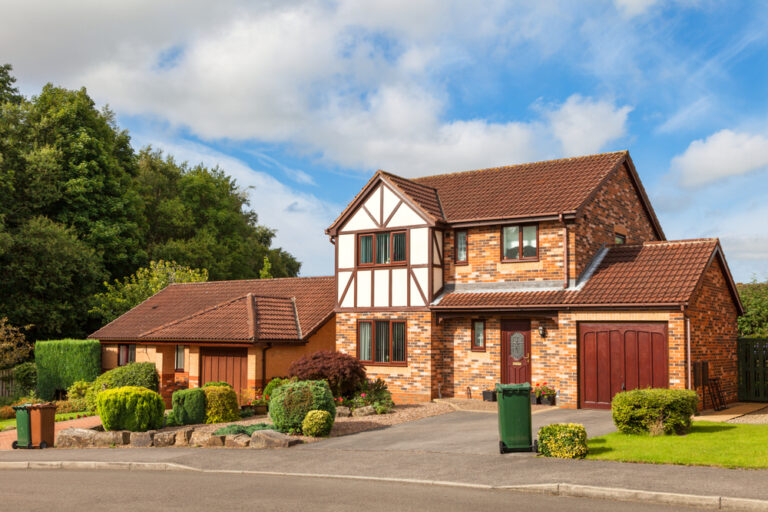Talk of rising house prices has been joined by increasing inflation, the cost-of-living crisis, and rising interest rates.
And with the rise in the cost of living and borrowing, it would be easy to conclude that now is not a great time to buy a house.
Is it really that simple though?
“The cost-of-living crisis and rising interest rates will impact the market in many ways, but with limited supply and strong demand, property prices right now are still increasing,” says Rob Smith, Managing Director of Whitegates.
“With mortgage costs going up and schemes like Help to Buy coming to an end, however, first-time buyers may find it even harder to get onto the property ladder in the months to come.”
In this guide, we assess the current property market and look at the various options available to buyers right now.

Housing market predictions
Most major commentators on UK house prices have predicted a slowing of growth for the remainder of 2022 into 2023.
Rightmove
Rightmove’s latest house price index showed national average asking prices 9.3% higher than in June 2022.
But there was only a 0.4% monthly rise in asking prices, suggesting the first signs of a slowdown in price growth.
Rightmove predicts house prices will by 5% higher at the end of 2022 than they were at the end of 2021, with fellow property portal Zoopla saying a 3% increase is more likely.
Nationwide
Nationwide’s house price index showed 11% annual growth in property prices, but also only 0.1% growth in the month between June 2022 and July 2022, indicating a slowdown.
Halifax
Halifax’s house price index showed 13% growth in prices between June 2021 and July 2022, while monthly growth was at 1.8%, suggesting the market may be rallying against the predicted slowdown in growth.
What will happen to house prices in 2023?
The are several factors that could see house prices fall later in 2022 and into 2023:
1. Rising inflation
The cost-of-living crisis has seen inflation soar and with household budgets stretched, many will postpone thoughts of buying a property.
2. Higher interest rates
Interest rates are now at a decade high having been below 1% for much of the past 10 years.
A 0.5% rise in rates for the first time in 27 years was announced in August 2022, putting rates at 1.75% – their highest since 2008.
Rising rates mean it’s more expensive to borrow and harder for potential buyers to find a suitable mortgage deal.
3. Rising costs and more properties on the market
Homeowners who struggle to meet the rising cost of living could be forced to sell their homes, meaning an increase in supply alongside low buyer demand and this could cause prices to fall.
“Although some of these factors may cool the market, property prices across the UK have been very resilient over the last few years, despite a lot of economic turbulence and uncertainty,” says Rob Smith, Whitegates’ Managing Director.

Is a recession a good time to buy a house?
During a recession, property prices generally fall, while sellers may be looking for a quick deal to free them from the shackles of their mortgage.
For first-time buyers, however, rising interest rates mean borrowing is more difficult, while buying when prices are falling increases the risk of first timers falling into negative equity.
For existing homeowners with plenty of equity in their homes, falling prices are more of an opportunity to secure a good deal without the threat of negative equity.
“However, it is very difficult to predict when you should or shouldn’t buy,” advises Rob Smith, Managing Director of Whitegates.
“If you want to buy and can afford it, it’s best to think of your home as a long-term investment that you can enjoy for years to come.”
The best government schemes to buy a house
There are several government schemes that can help you get on the property market as a first-time buyer.
However, the Help to Buy scheme is due to end in 2022, so you’ll need to move quickly if you want to take advantage of that scheme.
1. Help to Buy
The Help to Buy scheme allows buyers to purchase a new home with just a 5% deposit, alongside a government equity loan of 20% (or 40% in London).
This 20% equity loan is interest-free for five years, but tracks the value of the property over time, so if your home’s value goes up, the loan amount goes up, too.
There are maximum purchase prices under Help to Buy and these vary depending on the region you’re buying in.
The Help to Buy scheme is due to end in March 2023, but the deadline for new applications is on October 31, 2022.
2. The 95% mortgage guarantee scheme
Under this scheme, buyers with just a 5% deposit can take out a 95% mortgage that is backed by the government as a guarantor.
However, 95% mortgages are also available outside of the scheme and may be cheaper.
The 95% mortgage guarantee scheme runs until the end of 2022.
3. Shared Ownership
Through the Shared Ownership scheme, buyers can purchase a share in a property – usually between 25% and 75%.
They then pay a reduced market rent to a housing association on the share they don’t own but can also purchase an increase in their share over time, known as ‘staircasing’.
Because you only take out a mortgage on the share you own, and the housing association rent is generally cheaper, Shared Ownership can be a cost-effective way to get a foot on the property ladder.
Is now a good time to buy your first house?
Although prices are rising further out of reach for many first-time buyers, low deposit mortgages are still available.
The Help to Buy scheme is also available until October, alongside the Shared Ownership programme.
Mortgage lenders are also now able to remove one of the affordability rules used when assessing mortgage applications.
The rule stated that buyers needed to be able to afford a 3% rise in interest rates on top of a lender’s standard variable rate (SVR).
Now that has been removed, it could mean:
- More first-time buyers being able to get a mortgage
- Some buyers can take out larger loans
But first-time buyers should think about what they need now and in the long term and try to save as large a deposit as possible.
This will help them to avoid the potential of negative equity should they buy now, and house prices fall later.
When is the best time of year to buy a house?
Spring is widely considered the best time of year to buy a house, because:
- There are generally more homes available to buy
- Sales can often complete more quickly with buyers and sellers keen to have everything tied up by summer
- The weather is better, but not too hot, making it a good time to move
August is usually a slower time for the property market, due to the school holidays and families being away.
But September can be a good time to buy due to the schools being back and plenty of time to complete before Christmas.
And if you’re looking for a bargain and are under no pressure to complete quickly, the winter months can also be a great time to start searching, with much less competition from other buyers.
Further reading…
- How much does it cost to buy and maintain a property now?
- Your ultimate checklist for viewing a property
- Great tips to help you save a house deposit
Still have questions? Contact your local Whitegates branch today: www.whitegates.co.uk/e…




